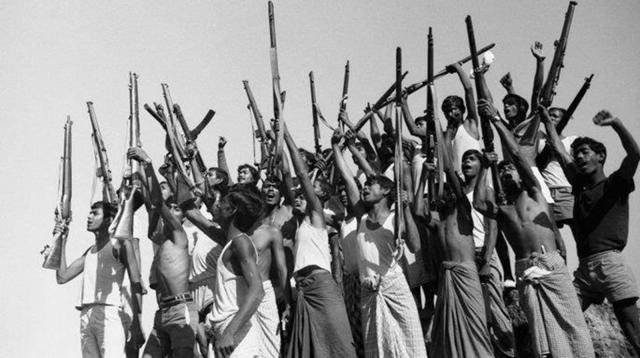Only 40 of the Liberation War

In the last 47 years, 40 Ph.D. research has been done with the liberation war of Bangladesh. Of these 35 have been done in different departments of Bangladesh University and at the university's research institutions. Five of the Bangladeshi researchers have found PhD in foreign universities.
The emergence of Bangladesh has led to armed struggle. Researchers think that this number of big research or PhDs in the center of higher education compared to the extent and multiplicity of the liberation war. They believe that the lack of disadvantage, divided politics, lack of necessary information and obstruction of public information to the public is due to the fact that PhD is low.
Imtiaz Ahmed, chairman of the Center for Genocide Studies, University of Dhaka, said, "Large research done shortly after the war or similar big events is a complex one. But we have passed a lot of time after the liberation war. It is somewhat frustrating to present so much of our liberation war at the level of our higher studies.
Two lists of researches carried out in the war of liberation in Bangladesh have been found. One of the books of the history research center of Dhaka University, 'History History in Bangladesh'. The other is the book 'Liberation War Research: Satik Bhaag Kalpapanji', edited by Rajshahi University Institute of Bangladesh Studies (IBS) Kazi Mamun Haider.
The information of these two books has been compiled with the information provided by the Central Library of the Office of the Examination Board of the various public universities of the country. The information collected from researchers - working in different universities of the world, is working on liberation war.
PhD has been studied in Dhaka, Jahangirnagar, Rajshahi, Chittagong, Kushtia Islamic University of Bangladesh. Apart from this, Rajshahi University's Institute of Bangladesh Studies (IBS) has been present. Rajshahi University has the highest number of 17 PhDs in various departments and IBS. Then there are Jahangirnagar University. There have been nine ph.D. Five universities in Chittagong University and one in Islami University in Kushtia.
Historian Muntasir Mamun thinks that the number of PhDs in the number of liberation war of 1971 is quite small compared to that of the Liberation War. He mentioned some of the reasons behind this. Among them, the researchers are reluctant to study it; Muntasir Mamun said, "The teachers who joined our universities in the 50's or 60's had a kind of reluctance and frenzy about the liberation war. But the next generation of teachers have been interested in this.
In the history section, the division has been the most. The number of PhDs in the history of different universities is 13. Then there is the Bengali section. PhD has six students in this division of universities. Other sections include Islam's History, Fine Arts, Drama, and Drama. PhD in geography and sociology has become one.
In the field of humanism, as far as the PhD of liberation war, the number is absolutely insignificant in political science, social sciences and economics. The University of Dhaka did not have a PhD in Liberation War in Political Science, Public Administration, International Relations or Sociology. The number of PhDs at Dhaka University is three.
Professor Salahuddin M. Aminuzzaman of the Department of Public Administration of Dhaka University and researcher said that it is frustrating for the liberation war's socialistic and political studies. Professor Muntasir Mamun also agreed with Professor Aminuzzaman, who said that the senior teachers spoke. But he also believed there was some technical reason behind the lack of research. One of them, after the country became independent, a large part of meritorious teachers became involved in the formation of the state. He said that the country's first five-year plan was the result of the labor of the meritorious teachers. In this way, a part of the mercury took part in state work.
After the country became independent, the part of the meritorious students went out of the country to do PhD or other research, their research did not even lead to liberation war. Why? In this context Professor Aminuzzaman thinks that going out of the country on behalf of a meritocracy during the Pakistan period was a dream. Despite the independence of the country, the opportunity to work in accordance with the conditions of the donor countries of PhD. During that time, the development of the village was their priority list. After the 1990s, the condition of the donor countries has been relaxed for these research. Now the government is sent out of the government level. In that case, there was an opportunity to choose the liberation war. Still, why does not it work? Salauddin M Aminuzzaman thinks that he is thinking about the matter.
Congratulations @polash1! You have completed some achievement on Steemit and have been rewarded with new badge(s) :
Click on any badge to view your own Board of Honor on SteemitBoard.
To support your work, I also upvoted your post!
For more information about SteemitBoard, click here
If you no longer want to receive notifications, reply to this comment with the word
STOP